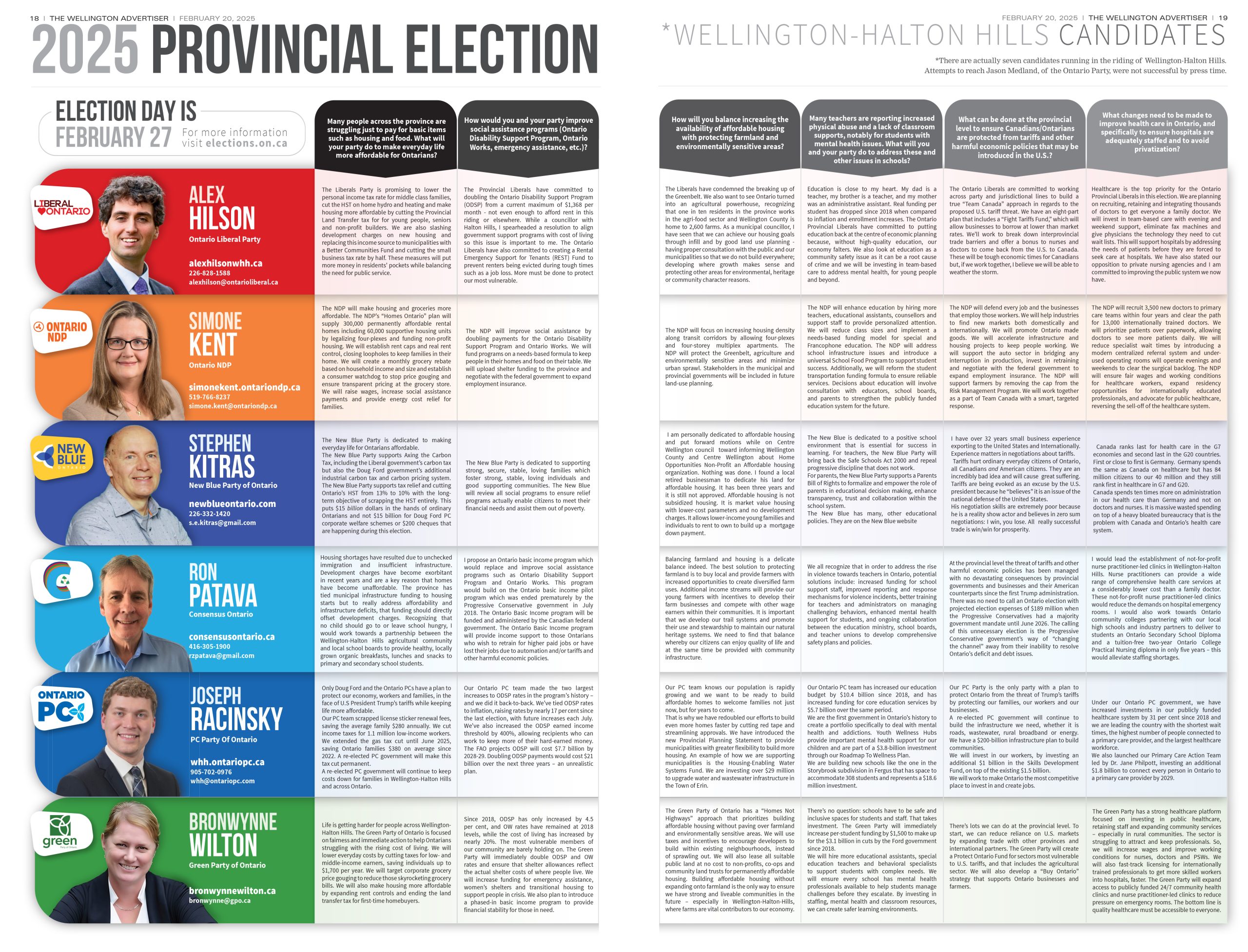WELLINGTON-HALTON HILLS – As part of the Wellington Advertiser’s coverage of the 2025 provincial election, the newspaper offered all local candidates a chance to participate in a Q&A feature leading up to the Feb. 27 election.
Scroll down to read each candidate’s answers.
*There are actually seven candidates running in the riding of Wellington-Halton Hills.
Attempts to reach Jason Medland, of the Ontario Party, were not successful.
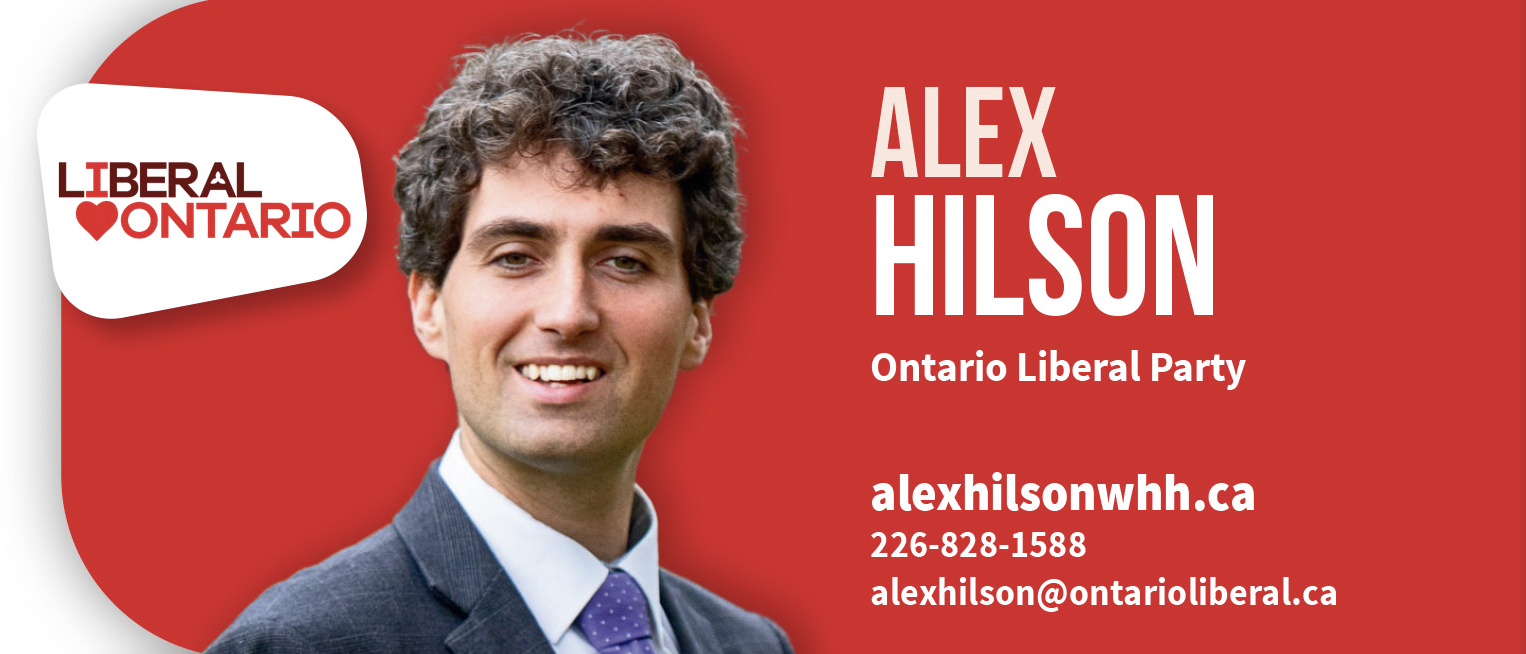
Many people across the province are struggling just to pay for basic items such as housing and food. What will your party do to make everyday life more affordable for Ontarians?
The Liberals Party is promising to lower the personal income tax rate for middle class families, cut the HST on home hydro and heating and make housing more affordable by cutting the Provincial Land Transfer tax for for young people, seniors and non-profit builders. We are also slashing development charges on new housing and replacing this income source to municipalities with a Better Communities Fund and cutting the small business tax rate by half. These measures will put more money in residents’ pockets while balancing the need for public service.
How would you and your party improve social assistance programs (Ontario Disability Support Program, Ontario Works, emergency assistance, etc.)?
The Provincial Liberals have committed to doubling the Ontario Disability Support Program (ODSP) from a current maximum of $1,368 per month – not even enough to afford rent in this riding or elsewhere. While a councillor with Halton Hills, I spearheaded a resolution to align government support programs with cost of living so this issue is important to me. The Ontario Liberals have also committed to creating a Rental Emergency Support for Tenants (REST) Fund to prevent renters being evicted during tough times such as a job loss. More must be done to protect our most vulnerable.
How will you balance increasing the availability of affordable housing with protecting farmland and environmentally sensitive areas?
The Liberals have condemned the breaking up of the Greenbelt. We also want to see Ontario turned into an agricultural powerhouse, recognizing that one in ten residents in the province works in the agri-food sector and Wellington County is home to 2,600 farms. As a municipal councillor, I have seen that we can achieve our housing goals through infill and by good land use planning – having proper consultation with the public and our municipalities so that we do not build everywhere; developing where growth makes sense and protecting other areas for environmental, heritage or community character reasons.
Many teachers are reporting increased physical abuse and a lack of classroom supports, notably for students with mental health issues. What will you and your party do to address these and other issues in schools?
Education is close to my heart. My dad is a teacher, my brother is a teacher, and my mother was an administrative assistant. Real funding per student has dropped since 2018 when compared to inflation and enrollment increases. The Ontario Provincial Liberals have committed to putting education back at the centre of economic planning because, without high-quality education, our economy falters. We also look at education as a community safety issue as it can be a root cause of crime and we will be investing in team-based care to address mental health, for young people and beyond.
What can be done at the provincial level to ensure Canadians/Ontarians are protected from tariffs and other harmful economic policies that may be introduced in the U.S.?
The Ontario Liberals are committed to working across party and jurisdictional lines to build a true “Team Canada” approach in regards to the proposed U.S. tariff threat. We have an eight-part plan that includes a “Fight Tariffs Fund,” which will allow businesses to borrow at lower than market rates. We’ll work to break down interprovincial trade barriers and offer a bonus to nurses and doctors to come back from the U.S. to Canada. These will be tough economic times for Canadians but, if we work together, I believe we will be able to weather the storm.
What changes need to be made to improve health care in Ontario, and specifically to ensure hospitals are adequately staffed and to avoid privatization?
Healthcare is the top priority for the Ontario Provincial Liberals in this election. We are planning on recruiting, retaining and integrating thousands of doctors to get everyone a family doctor. We will invest in team-based care with evening and weekend support, eliminate fax machines and give physicians the technology they need to cut wait lists. This will support hospitals by addressing the needs of patients before they are forced to seek care at hospitals. We have also stated our opposition to private nursing agencies and I am committed to improving the public system we now have.
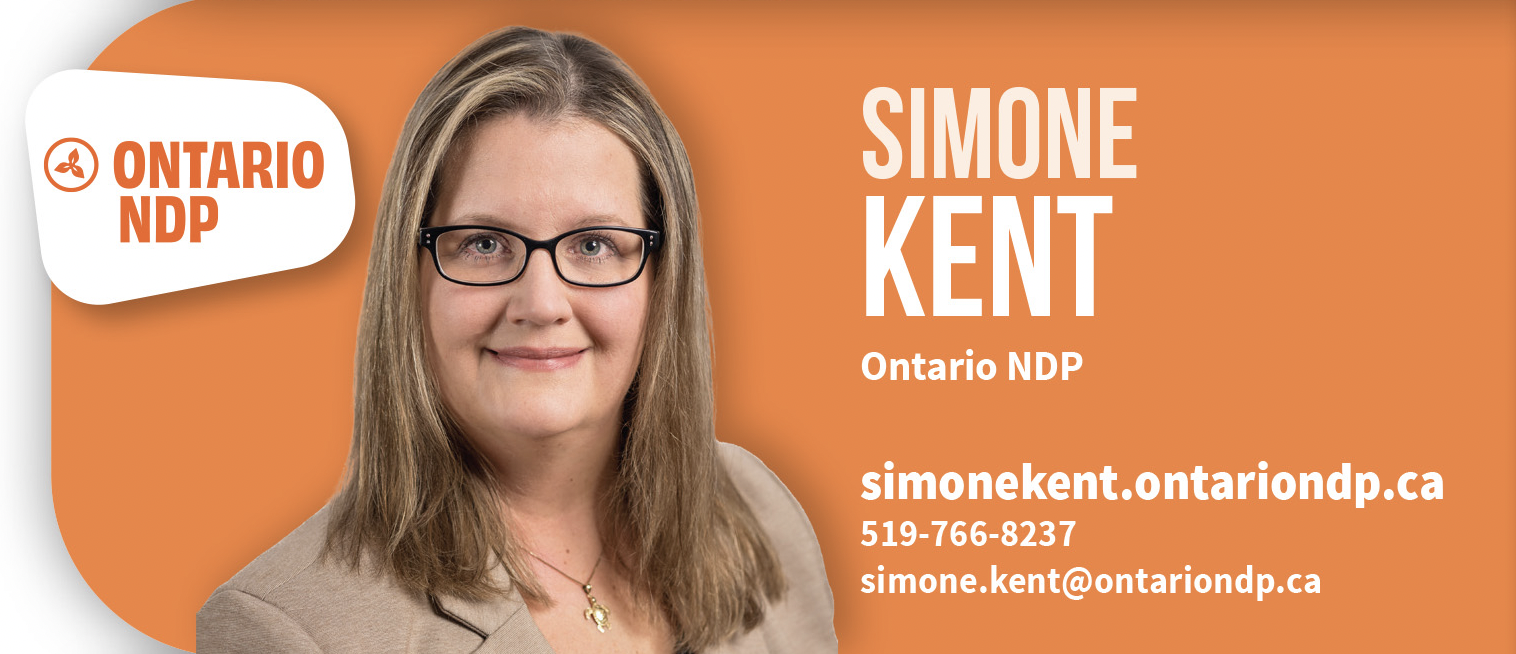
Many people across the province are struggling just to pay for basic items such as housing and food. What will your party do to make everyday life more affordable for Ontarians?
The NDP will make housing and groceries more affordable. The NDP’s “Homes Ontario” plan will supply 300,000 permanently affordable rental homes including 60,000 supportive housing units by legalizing four-plexes and funding non-profit housing. We will establish rent caps and real rent control, closing loopholes to keep families in their home. We will create a monthly grocery rebate based on household income and size and establish a consumer watchdog to stop price gouging and ensure transparent pricing at the grocery store. We will raise wages, increase social assistance payments and provide energy cost relief for families.
How would you and your party improve social assistance programs (Ontario Disability Support Program, Ontario Works, emergency assistance, etc.)?
The NDP will improve social assistance by doubling payments for the Ontario Disability Support Program and Ontario Works. We will fund programs on a needs-based formula to keep people in their homes and food on their table. We will upload shelter funding to the province and negotiate with the federal government to expand employment insurance.
How will you balance increasing the availability of affordable housing with protecting farmland and environmentally sensitive areas?
The NDP will focus on increasing housing density along transit corridors by allowing four-plexes and four-storey multiplex apartments. The NDP will protect the Greenbelt, agriculture and environmentally sensitive areas and minimize urban sprawl. Stakeholders in the municipal and provincial governments will be included in future land-use planning.
Many teachers are reporting increased physical abuse and a lack of classroom supports, notably for students with mental health issues. What will you and your party do to address these and other issues in schools?
The NDP will enhance education by hiring more teachers, educational assistants, counsellors and support staff to provide personalized attention. We will reduce class sizes and implement a needs-based funding model for special and Francophone education. The NDP will address school infrastructure issues and introduce a universal School Food Program to support student success. Additionally, we will reform the student transportation funding formula to ensure reliable services. Decisions about education will involve consultation with educators, school boards, and parents to strengthen the publicly funded education system for the future.
What can be done at the provincial level to ensure Canadians/Ontarians are protected from tariffs and other harmful economic policies that may be introduced in the U.S.?
The NDP will defend every job and the businesses that employ those workers. We will help industries to find new markets both domestically and internationally. We will promote Ontario made goods. We will accelerate infrastructure and housing projects to keep people working. We will support the auto sector in bridging any interruption in production, invest in retraining and negotiate with the federal government to expand employment insurance. The NDP will support farmers by removing the cap from the Risk Management Program. We will work together as a part of Team Canada with a smart, targeted response.
What changes need to be made to improve health care in Ontario, and specifically to ensure hospitals are adequately staffed and to avoid privatization?
The NDP will recruit 3,500 new doctors to primary care teams within four years and clear the path for 13,000 internationally trained doctors. We will prioritize patients over paperwork, allowing doctors to see more patients daily. We will reduce specialist wait times by introducing a modern centralized referral system and under-used operating rooms will operate evenings and weekends to clear the surgical backlog. The NDP will ensure fair wages and working conditions for healthcare workers, expand residency opportunities for internationally educated professionals, and advocate for public healthcare, reversing the sell-off of the healthcare system.

Many people across the province are struggling just to pay for basic items such as housing and food. What will your party do to make everyday life more affordable for Ontarians?
The New Blue Party is dedicated to making everyday life for Ontarians affordable.
The New Blue Party supports Axing the Carbon Tax, including the Liberal government’s carbon tax but also the Doug Ford government’s additional industrial carbon tax and carbon pricing system. The New Blue Party supports tax relief and cutting Ontario’s HST from 13% to 10% with the long-term objective of scrapping the HST entirely. This puts $15 billion dollars in the hands of ordinary Ontarians and not $15 billion for Doug Ford PC corporate welfare schemes or $200 cheques that are happening during this election.
How would you and your party improve social assistance programs (Ontario Disability Support Program, Ontario Works, emergency assistance, etc.)?
The New Blue Party is dedicated to supporting strong, secure, stable, loving families which foster strong, stable, loving individuals and good supporting communities. The New Blue will review all social programs to ensure relief programs actually enable citizens to meet their financial needs and assist them out of poverty.
How will you balance increasing the availability of affordable housing with protecting farmland and environmentally sensitive areas?
I am personally dedicated to affordable housing and put forward motions while on Centre Wellington council toward informing Wellington County and Centre Wellington about Home Opportunities Non-Profit an Affordable housing organization. Nothing was done. I found a local retired businessman to dedicate his land for affordable housing. It has been three years and it is still not approved. Affordable housing is not subsidized housing. It is market value housing with lower-cost parameters and no development charges. It allows lower-income young families and individuals to rent to own to build up a mortgage down payment.
Many teachers are reporting increased physical abuse and a lack of classroom supports, notably for students with mental health issues. What will you and your party do to address these and other issues in schools?
The New Blue is dedicated to a positive school environment that is essential for success in learning. For teachers, the New Blue Party will bring back the Safe Schools Act 2000 and repeal progressive discipline that does not work.
For parents, the New Blue Party supports a Parents Bill of Rights to formalize and empower the role of parents in educational decision making, enhance transparency, trust and collaboration within the school system.
The New Blue has many, other educational policies. They are on the New Blue website
What can be done at the provincial level to ensure Canadians/Ontarians are protected from tariffs and other harmful economic policies that may be introduced in the U.S.?
I have over 32 years small business experience exporting to the United States and Internationally. Experience matters in negotiations about tariffs.
Tariffs hurt ordinary everyday citizens of Ontario, all Canadians and American citizens. They are an incredibly bad idea and will cause great suffering. Tariffs are being evoked as an excuse by the U.S. president because he “believes” it is an issue of the national defense of the United States.
His negotiation skills are extremely poor because he is a reality show actor and believes in zero sum negotiations: I win, you lose. All really successful trade is win/win for prosperity.
What changes need to be made to improve health care in Ontario, and specifically to ensure hospitals are adequately staffed and to avoid privatization?
Canada ranks last for health care in the G7 economies and second last in the G20 countries. First or close to first is Germany. Germany spends the same as Canada on healthcare but has 84 million citizens to our 40 million and they still rank first in healthcare in G7 and G20.
Canada spends ten times more on administration in our health care than Germany and not on doctors and nurses. It is massive wasted spending on top of a heavy bloated bureaucracy that is the problem with Canada and Ontario’s health care system.

Many people across the province are struggling just to pay for basic items such as housing and food. What will your party do to make everyday life more affordable for Ontarians?
Housing shortages have resulted due to unchecked immigration and insufficient infrastructure. Development charges have become exorbitant in recent years and are a key reason that homes have become unaffordable. The province has tied municipal infrastructure funding to housing starts but to really address affordability and infrastructure deficits, that funding should directly offset development charges. Recognizing that no child should go to or leave school hungry, I would work towards a partnership between the Wellington-Halton Hills agricultural community and local school boards to provide healthy, locally grown organic breakfasts, lunches and snacks to primary and secondary school students.
How would you and your party improve social assistance programs (Ontario Disability Support Program, Ontario Works, emergency assistance, etc.)?
I propose an Ontario basic income program which would replace and improve social assistance programs such as Ontario Disability Support Program and Ontario Works. This program would build on the Ontario basic income pilot program which was ended prematurely by the Progressive Conservative government in July 2018. The Ontario Basic Income program will be funded and administered by the Canadian federal government. The Ontario Basic Income program will provide income support to those Ontarians who wish to retrain for higher paid jobs or have lost their jobs due to automation and/or tariffs and other harmful economic policies.
How will you balance increasing the availability of affordable housing with protecting farmland and environmentally sensitive areas?
Balancing farmland and housing is a delicate balance indeed. The best solution to protecting farmland is to buy local and provide farmers with increased opportunities to create diversified farm uses. Additional income streams will provide our young farmers with incentives to develop their farm businesses and compete with other wage earners within their communities. It is important that we develop our trail systems and promote their use and stewardship to maintain our natural heritage systems. We need to find that balance whereby our citizens can enjoy quality of life and at the same time be provided with community infrastructure.
Many teachers are reporting increased physical abuse and a lack of classroom supports, notably for students with mental health issues. What will you and your party do to address these and other issues in schools?
We all recognize that in order to address the rise in violence towards teachers in Ontario, potential solutions include: increased funding for school support staff, improved reporting and response mechanisms for violence incidents, better training for teachers and administrators on managing challenging behaviors, enhanced mental health support for students, and ongoing collaboration between the education ministry, school boards, and teacher unions to develop comprehensive safety plans and policies.
What can be done at the provincial level to ensure Canadians/Ontarians are protected from tariffs and other harmful economic policies that may be introduced in the U.S.?
At the provincial level the threat of tariffs and other harmful economic policies has been managed with no devastating consequences by provincial governments and businesses and their American counterparts since the first Trump administration. There was no need to call an Ontario election with projected election expenses of $189 million when the Progressive Conservatives had a majority government mandate until June 2026. The calling of this unnecessary election is the Progressive Conservative government’s way of “changing the channel” away from their inability to resolve Ontario’s deficit and debt issues.
What changes need to be made to improve health care in Ontario, and specifically to ensure hospitals are adequately staffed and to avoid privatization?
I would lead the establishment of not-for-profit nurse practitioner-led clinics in Wellington-Halton Hills. Nurse practitioners can provide a wide range of comprehensive health care services at a considerably lower cost than a family doctor. These not-for-profit nurse practitioner-led clinics would reduce the demands on hospital emergency rooms. I would also work towards Ontario community colleges partnering with our local high schools and industry partners to deliver to students an Ontario Secondary School Diploma and a tuition-free two-year Ontario College Practical Nursing diploma in only five years – this would alleviate staffing shortages.
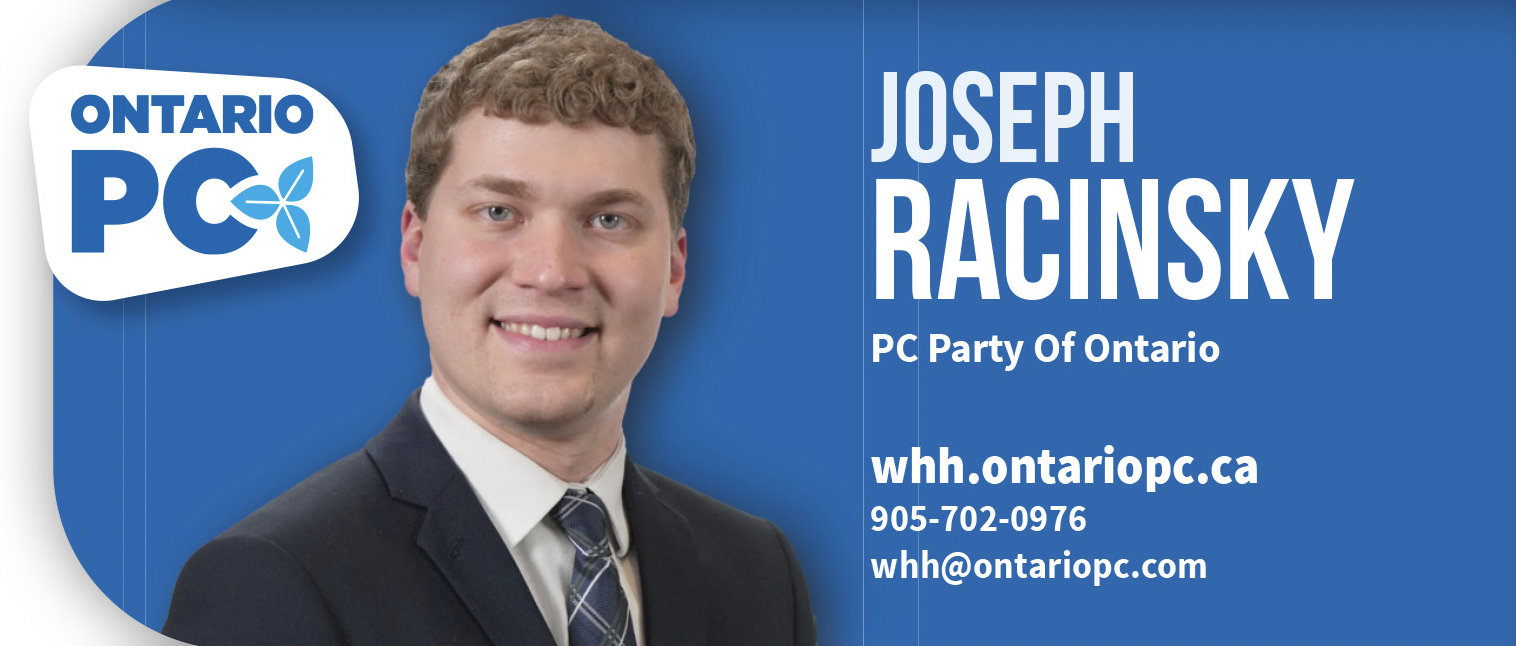
Many people across the province are struggling just to pay for basic items such as housing and food. What will your party do to make everyday life more affordable for Ontarians?
Only Doug Ford and the Ontario PCs have a plan to protect our economy, workers and families, in the face of U.S President Trump’s tariffs while keeping life more affordable.
Our PC team scrapped license sticker renewal fees, saving the average family $280 annually. We cut income taxes for 1.1 million low-income workers. We extended the gas tax cut until June 2025, saving Ontario families $380 on average since 2022. A re-elected PC government will make this tax cut permanent.
A re-elected PC government will continue to keep costs down for families in Wellington-Halton Hills and across Ontario.
How would you and your party improve social assistance programs (Ontario Disability Support Program, Ontario Works, emergency assistance, etc.)?
Our Ontario PC team made the two largest increases to ODSP rates in the program’s history – and we did it back-to-back. We’ve tied ODSP rates to inflation, raising rates by nearly 17 per cent since the last election, with future increases each July. We’ve also increased the ODSP earned income threshold by 400%, allowing recipients who can work to keep more of their hard-earned money. The FAO projects ODSP will cost $7.7 billion by 2028-29. Doubling ODSP payments would cost $21 billion over the next three years – an unrealistic plan.
How will you balance increasing the availability of affordable housing with protecting farmland and environmentally sensitive areas?
Our PC team knows our population is rapidly growing and we want to be ready to build affordable homes to welcome families not just now, but for years to come.
That is why we have redoubled our efforts to build even more homes faster by cutting red tape and streamlining approvals. We have introduced the new Provincial Planning Statement to provide municipalities with greater flexibility to build more housing. An example of how we are supporting municipalities is the Housing-Enabling Water Systems Fund. We are investing over $29 million to upgrade water and wastewater infrastructure in the Town of Erin.
Many teachers are reporting increased physical abuse and a lack of classroom supports, notably for students with mental health issues. What will you and your party do to address these and other issues in schools?
Our Ontario PC team has increased our education budget by $10.4 billion since 2018, and has increased funding for core education services by $5.7 billion over the same period.
We are the first government in Ontario’s history to create a portfolio specifically to deal with mental health and addictions. Youth Wellness Hubs provide important mental health support for our children and are part of a $3.8-billion investment through our Roadmap To Wellness Plan.
We are building new schools like the one in the Storybrook subdivision in Fergus that has space to accommodate 308 students and represents a $18.6 million investment.
What can be done at the provincial level to ensure Canadians/Ontarians are protected from tariffs and other harmful economic policies that may be introduced in the U.S.?
Our PC Party is the only party with a plan to protect Ontario from the threat of Trump’s tariffs by protecting our families, our workers and our businesses.
A re-elected PC government will continue to build the infrastructure we need, whether it is roads, wastewater, rural broadband or energy. We have a $200-billion infrastructure plan to build communities.
We will invest in our workers, by investing an additional $1 billion in the Skills Development Fund, on top of the existing $1.5 billion.
We will work to make Ontario the most competitive place to invest in and create jobs.
What changes need to be made to improve health care in Ontario, and specifically to ensure hospitals are adequately staffed and to avoid privatization?
Under our Ontario PC government, we have increased investments in our publicly funded healthcare system by 31 per cent since 2018 and we are leading the country with the shortest wait times, the highest number of people connected to a primary care provider, and the largest healthcare workforce.
We also launched our Primary Care Action Team led by Dr. Jane Philpott, investing an additional $1.8 billion to connect every person in Ontario to a primary care provider by 2029.
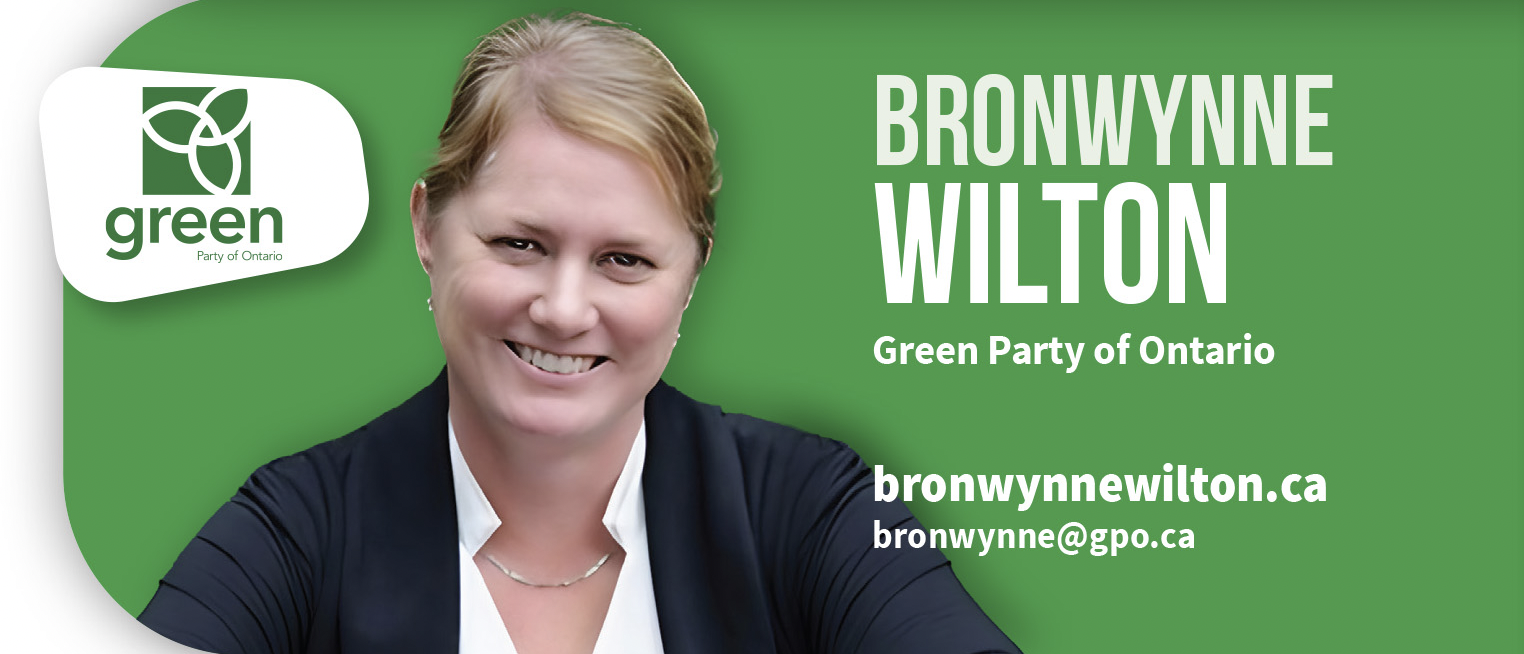
Many people across the province are struggling just to pay for basic items such as housing and food. What will your party do to make everyday life more affordable for Ontarians?
Life is getting harder for people across Wellington-Halton Hills. The Green Party of Ontario is focused on fairness and immediate action to help Ontarians struggling with the rising cost of living. We will lower everyday costs by cutting taxes for low- and middle-income earners, saving individuals up to $1,700 per year. We will target corporate grocery price gouging to reduce those skyrocketing grocery bills. We will also make housing more affordable by expanding rent controls and ending the land transfer tax for first-time homebuyers.
How would you and your party improve social assistance programs (Ontario Disability Support Program, Ontario Works, emergency assistance, etc.)?
Since 2018, ODSP has only increased by 4.5 per cent, and OW rates have remained at 2018 levels, while the cost of living has increased by nearly 20%. The most vulnerable members of our community are barely holding on. The Green Party will immediately double ODSP and OW rates and ensure that shelter allowances reflect the actual shelter costs of where people live. We will increase funding for emergency assistance, women’s shelters and transitional housing to support people in crisis. We also plan to introduce a phased-in basic income program to provide financial stability for those in need.
How will you balance increasing the availability of affordable housing with protecting farmland and environmentally sensitive areas?
The Green Party of Ontario has a “Homes Not Highways” approach that prioritizes building affordable housing without paving over farmland and environmentally sensitive areas. We will use taxes and incentives to encourage developers to build within existing neighbourhoods, instead of sprawling out. We will also lease all suitable public land at no cost to non-profits, co-ops and community land trusts for permanently affordable housing. Building affordable housing without expanding onto farmland is the only way to ensure we have strong and liveable communities in the future – especially in Wellington-Halton-Hills, where farms are vital contributors to our economy.
Many teachers are reporting increased physical abuse and a lack of classroom supports, notably for students with mental health issues. What will you and your party do to address these and other issues in schools?
There’s no question: schools have to be safe and inclusive spaces for students and staff. That takes investment. The Green Party will immediately increase per-student funding by $1,500 to make up for the $3.1 billion in cuts by the Ford government since 2018.
We will hire more educational assistants, special education teachers and behavioral specialists to support students with complex needs. We will ensure every school has mental health professionals available to help students manage challenges before they escalate. By investing in staffing, mental health and classroom resources, we can create safer learning environments.
What can be done at the provincial level to ensure Canadians/Ontarians are protected from tariffs and other harmful economic policies that may be introduced in the U.S.?
There’s lots we can do at the provincial level. To start, we can reduce reliance on U.S. markets by expanding trade with other provinces and international partners. The Green Party will create a Protect Ontario Fund for sectors most vulnerable to U.S. tariffs, and that includes the agricultural sector. We will also develop a “Buy Ontario” strategy that supports Ontario businesses and farmers.
What changes need to be made to improve health care in Ontario, and specifically to ensure hospitals are adequately staffed and to avoid privatization?
The Green Party has a strong healthcare platform focused on investing in public healthcare, retaining staff and expanding community services – especially in rural communities. The sector is struggling to attract and keep professionals. So, we will increase wages and improve working conditions for nurses, doctors and PSWs. We will also fast-track licensing for internationally trained professionals to get more skilled workers into hospitals, faster. The Green Party will expand access to publicly funded 24/7 community health clinics and nurse practitioner-led clinics to reduce pressure on emergency rooms. The bottom line is quality healthcare must be accessible to everyone.




